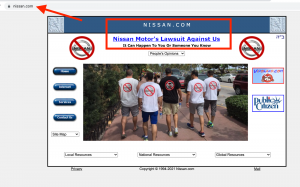
Who doesn’t want a guaranteed income stream to gather the litter of your crushed retirement plans? But, some annuities offer financial safety. Stan Haithcock, renowned as Stan The Annuity Man states, “Saying you hate annuities is like saying you hate all restaurants.” So, let’s dive in to learn a few important things about annuities.
What Is An Annuity?
“Annuities can produce an income stream you can’t outlive.”
It’s a contract with the insurance company that binds both the company and the annuitant into unbreakable contractual obligations. Upon breaching the policies, a high penalty cost is liable. The contract revolves around specific goals like legacy planning, lifetime income, long-term care costs, and principal protection cost.
Troy Bender, CEO at Asset Retention Insurance Services, states, “Annuities have been around for centuries,” He further shared that in Ancient Rome, a single payment method was used. People used to get annual lifetime payments on a single payment. Even in those days, there was a concern for the retirement plans. Furthermore, in the U.S., people are more interested in annuities than in pension plans.
Why Buy An Annuity?
The major reason for getting an annuity is the guarantee it provides. The income is measured through your life expectancy. So, no matter how long you live, you will have stable financial safety. Apart from this, if you have maxed out your financial tool like 401 (k) or IRA, getting an annuity will prove favorable. It offers a better tax-sheltered program to save your retirement.
In addition, it does not place any limit on contribution. So, you get the freedom to save up to whatever count you can. Furthermore, as you get the surety of getting your amount altogether in the end, you can work on an aggressive investing strategy and take challenges more confidently.
How Annuities Benefit Businesses
As a business owner, it is an eCommerce store like eWorldTrade or any other business model; you can get many perks by having the annuity. By getting a retirement plan for your company, you can save the future of both yourself and that of your employees. You can have a lifetime income guarantee.
As you know that the amount you contribute to your annuity account is tax-deferred, which means if you take up the plan for your business and withdraw the amount, you can attain a higher value. When the amount is not deducted, there will be more potential earnings available for you to benefit from in terms of a higher contract value.
Beneficiary Protection
In many annuity plans, if the owner dies, the amount is transferred to the beneficiaries before the plan starts. If the plan has started and the owner dies, then the policies will best describe how the money will be utilized.
Fund Individual Retirement Accounts
You can divide the annuities into individual retirement accounts. For instance, you can use two accounts, namely the “Savings Incentive Match Plan,” which is also called (SIMPLE-IRA) along with using Simplified Employee Pension Plan (SEP-IRA).
If you choose the annuity to fund a qualified program, you will not be able to utilize the tax advantages. Therefore, you can choose a qualified program for your annuity’s additional features that may include death benefit protection or lifetime income options.
How Does An Annuity Work?
The annuity revolves around transferring the risk from the annuitant to the insurance company. There are two phases involved. The first phase is referred to as the “premium-paying period,” wherein in a single series, you pay a lump sum amount to the company. It depends upon the annuity plan you take to deposit the amount in one go or set a proper accumulation period.
The next phase is referred to as “the payout phase.” If at any moment you stopped depositing the amount, you enter into the payout phase. After that, the annuity will start paying you off. However, there are a lot of things involved in buying, selling, and managing your annuity.
Things To Learn About Annuity
Learn about the easiest ways to sell and buy your annuities and what are the policies involved in the process from below mentioned 10 ways.
1. Annuities Differ From Life Insurance
Even though both of these plans are issued by the life insurance company, they differ in terms of benefits, policies, and procedures. Ken Nuss, CEO of AnnuityAdvantage, states, “While both life insurance and annuities are issued by the insurance companies, they serve opposite purposes,”
Life insurance plans offer advantages once you die, whereas annuities involve giving you benefits while you are alive. It is mostly in the form of a guaranteed stream of income. Moreover, the annuity eliminates the financial risk if the annuitant lives longer, whereas the life insurance plan benefits to the beneficiaries in case of premature death.
How Do I Buy an Annuity?
Once you have finalized your insurance company to get the annuity and agreed upon the terms, you must imitate the transactions. However, it’s recommended you learn about a few basic aspects before buying the annuity. You need to ponder on aspects mentioned below:
2. Take a Look At Your Financial Needs
The Certified Financial Planner Board of Standards Inc. back in 2019 instructed the CFPs to work in their client’s best interest. In addition, the new Code of Ethics and Standards of Conduct obliges the insurer to come up with valuable guidance for the customer. Therefore, now you can easily access valuable retirement planning questionnaires online. Furthermore, your advisor will guide you through those questions to make things clearer for you.
3. Have a Clear Objective To Choose Your Annuity
To ensure careful consideration with the annuity program clause, the companies ensure complete transparency. They offer illustrations to investors. They offer a personalized presentation that depicts the non-guaranteed elements involved in the annuity contract.
Furthermore, to make the investors make informed and conscious decisions, the Securities and Exchange Commission asks the annuity agents to offer a prospectus covering up the variable annuities.
4. Selecting Your Annuity Provider
As you know that annuities are not government-funded or supported, you need to be conscious of choosing your provider. You need to check the rating from Standard & Poor’s or Moody’s to find out the true ratings of the agencies you have shortlisted.
5. Complete The Application
How to fill out your application in good order? Well, the most important thing is to lock your rate and fill in every detail accurately. If you create any problem, you will have to face a longer processing time. A prolonged processing time may change your quoted rates only if the insurance company does not honor it. Moreover, one thing you need to note is that the insurer’s quoted rate policy differs.
Moreover, not all types of annuities can be governed by the same policy. Once you are through, take steps to transfer the funds. You can opt for the custodial transfer by transferring the amount from your IRA. You can also go for the amount in your brokerage account as well.
6. The Free-Look Period
The free look period saves you from scams. What happens is, most insurance companies give annuitants a period of 10 to 30 days from the date of the contract. During this time, they reject the annuity and enjoy the refund. So you need to ask your contractor to add the free-look period to the contract.
It is advisable to consult with the tax advisor in the case of investing all your funds. You should know the tax implications and understand the safest yet most progressive way to invest.
When To Purchase The Annuity
The right time to get an annuity is when the plan meets your needs. If you have maxed out your investments to any other retirement program and still want to save more, you can opt for taking an annuity. As there is no limit to the contribution, you can invest up to whatever limit you want to set.
Moreover, the amount you contribute to your annuity account is tax-deferred, which means you do not have to pay the taxes until the account starts paying you off. Therefore, take a look at your financial goals and decide which plan suits your needs.
How To Sell My Annuity
Do you know you can sell your annuity as well? Many annuitants keep the money they need and sell out the rest of the value of their annuity. They either sell the portion of the total value to make the payment in one go or a specific portion of the annuity. Here are 3 main options that you can try when selling your annuity.
7. Sell the Entire Annuity
If you sell the entire value of your annuity, it will liquidate the assets. You will not be able to get all the future incomes and payments. You can take the lump sum amount from your buyer in terms of your contract.
8. Sell The Annuity Payments In A Partial Sale
You can plan to sell only a specific portion of your annuity. You can continue getting the periodic incomes and while enjoying the tax benefits. If you need hard cash urgently, you can sell the partial period of payment to the buyer. For instance, if you sell one to four of your upcoming payments — once the period is over, you will continue to receive your amount as per the periodic time.
9. Sell a Portion of Payments
You can sell a specific portion of your payments. It is referred to as a partial buyout. You can take the lump sum amount and agree to share a specific amount from your periodic payments.
10. What Are The Benefits Of Buying And Selling Annuity
If you are considering selling your annuity, it can come with a lot of benefits. You can pay off any urgent pending payments by getting liquid cash. You can fulfill your financial needs. No matter what you need, you do not have to borrow the money from anyone and can pay it off with your own money without creating any financial gap.
Moreover, the benefits of getting in an annuity are huge. Annuity, through its stream of income, offers annuitants with tax advantages. It offers limitless contributions with a tax-deferred payment method. Moreover, if you die, all your money will be transferred to your beneficiaries as well.
How to Reduce Your Opportunity Cost
Many investors fear the risk of losing access to their money in terms of a long contract. What happened is as the possibility arrives that indicates that an annuitant might not be able to cover up the unexpected expenses, he misses out on the chance to seek benefit from the higher interest rates or even fail to invest in the stock market.
This is the reason why you need to plan things out based on your long-term goals and either sell or buy the annuity based on your financial needs. If you are ready to lock away your money for the contractual time to get a guaranteed lifetime income, you should opt for an annuity.
If you want to reduce your opportunity cost, it’s best to go for a partial payment plan. Here you will be able to save some of the amounts for unexpected payments alongside capitalizing on a premium interest rate.
What is the right time to buy an annuity?
It’s best to purchase the annuity as early as possible. However, it is recommended that if you have maxed out your limits in other retirement plans, you should opt for the annuity.
When should you not buy an annuity?
You must not buy the annuity if your Social Security number or the pension benefits are enough to cover your expenses. In addition, if you are below your average health or neck deep in the current investment scenario, you must not opt for an annuity plan.
Business & Finance Articles on Business 2 Community
(93)








